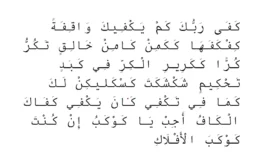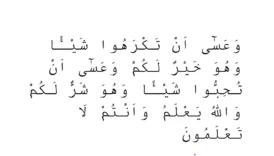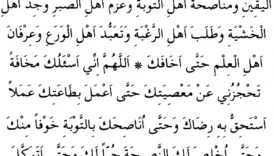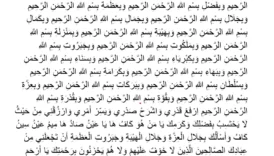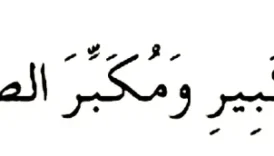RELIGIOUS MARRIAGE SUPPLICATION (IMAM NIKAH)
For Muslim couples in the United States, getting married in accordance with Islamic principles often involves two distinct steps: a civil ceremony recognized by state law, and a religious ceremony—commonly referred to as the “Imam Nikah” or “Religious Marriage.” While the civil marriage license ensures your union is legally valid in all 50 states, the religious ceremony fulfills the Islamic requirements and gives the marriage its spiritual and communal dimension.
- RELIGIOUS MARRIAGE SUPPLICATION (IMAM NIKAH)
- 1. What Is an Imam Nikah (Religious Marriage)?
- 2. How to Perform a Religious Marriage (Imam Nikah)
- 2.1 Preparing Necessary Documentation
- 2.2 Choosing Witnesses
- 2.3 Conducting the Ceremony
- 3. The Imam Nikah Supplication (Dua)
- 3.1 Arabic Text
- 3.2 Transliteration
- 3.3 English Translation (Meaning)
- CULTURAL NOTE FOR MUSLIMS IN THE U.S.
- Conclusion
- References
Below, you’ll find a comprehensive guide to conducting an Islamic religious marriage in the U.S., including cultural notes, procedural steps, and the text of a traditional marriage supplication (dua).
1. What Is an Imam Nikah (Religious Marriage)?
In Islamic tradition, a marriage is not merely a contract but a sacred covenant witnessed by God (Allah). The “Imam Nikah” (or “Religious Marriage”) is a ceremony where an imam or a qualified religious figure solemnizes the union in the presence of witnesses, following specific conditions laid out by Islamic jurisprudence (fiqh).
Just as in other parts of the Muslim world, the core essence of this religious ceremony remains the same in the United States: the couple (or their authorized representatives) express mutual consent to marry, witnesses verify that consent, and a dowry (mahr) is agreed upon. However, American Muslims often supplement this ceremony with cultural elements and logistical considerations unique to their communities.
Prophetic Tradition Encouraging Marriage
A hadith attributed to Prophet Muhammad (peace be upon him) underscores the significance of marriage in Islam:
“O young people! Whoever among you has the ability to fulfill the responsibilities of marriage should get married, for marriage helps lower the gaze and protect one’s chastity. But if someone cannot afford marriage, they should fast regularly, as it is a shield (against temptation).”
(Source: Sahih al-Bukhari, Book of Marriage; Sahih Muslim, Book of Marriage)
This narration highlights both the moral and societal importance of marriage in Islam.
2. How to Perform a Religious Marriage (Imam Nikah)
While individual communities may have slightly different customs, the following steps outline a generally accepted procedure for conducting an Imam Nikah in the United States.
2.1 Preparing Necessary Documentation
- Civil Marriage License (Optional at Time of Nikah):
- In many U.S. jurisdictions, you’ll need a valid marriage license from your county or state before performing any marriage ceremony that you wish to be legally recognized.
- Some imams will require you to obtain the civil license prior to conducting the religious ceremony to ensure that the marriage is both Islamically and legally valid.
- List of Names for the Religious Contract:
- Prepare a written record containing the full names of the bride, groom, their fathers (if applicable), the witnesses, and any appointed representatives (if performing the nikah by proxy).
- Clearly note the agreed-upon dowry (mahr).
(Reference: Ömer Nasuhi Bilmen, “Büyük İslam İlmihali” [Major Islamic Catechism])
2.2 Choosing Witnesses
- Islamic law typically requires two male witnesses or one male and two female witnesses for the marriage contract.
- In the U.S., these witnesses could be family members, friends, or community members.
- If the bride or groom appoints a representative (wakil), that representative must formally receive this role in the presence of at least two witnesses.
2.3 Conducting the Ceremony
- Seating Arrangement:
- If the bride and groom are present, the bride often sits to the right and the groom to the left of the imam or officiant. If representatives act on their behalf, they sit similarly.
- Explanation of Islamic Beliefs and Sifat (Attributes of Allah):
- Some imams begin by briefly mentioning the key attributes of Allah (the Divine Essence and Qualities) and affirming the congregants’ faith.
- Consent and Offer-Acceptance (Ijab and Qabul):
- The officiant asks for the groom’s acceptance of the bride and vice versa (directly or through their representatives).
- After both parties explicitly declare their consent, the marriage contract is deemed Islamically valid.
- Signing the Marriage Certificate (Religious and/or Civil):
- In some communities, a separate Islamic marriage certificate is signed.
- If you are combining the religious ceremony with the state-recognized process, your witnesses and the imam (if authorized) may sign the civil license on the spot.
- Reading the Nikah Dua (Supplication):
- The ceremony typically concludes with a supplication that seeks blessings, love, and harmony for the couple.
3. The Imam Nikah Supplication (Dua)
Below is a traditional dua often recited in an Islamic marriage ceremony. While styles and wordings may vary slightly from one community to another, this version is widely recognized and used.
3.1 Arabic Text
اَلْحَمْدُ لِلّٰهِ الَّذِي قَالَ فِي كِتَابِهِ الْكَرِيمِ وَأَنْكِحُوا الْاَيَامٰى مِنْكُمْ وَالصَّالِحِينَ مِنْ عِبَادِكُمْ وَاِمَائِكُمْ اِنْ يَكُونُوا فُقَرَاءَ يُغْنِهِمُ اللّٰهُ مِنْ فَضْلِه۪ وَاللّٰهُ وَاسِعٌ عَلِيمٌۚ وَالصَّلٰوةُ وَالسَّلَامُ عَلٰى سَيِّدِنَا مُحَمَّدٍ الَّذِي قَالَ فِي حَدِيثِهِ اَلنِّكَاحُ سُنَّتِي فَمَنْ رَغِبَ عَنْ سُنَّتِي فَلَيْسَ مِنِّي بِسْمِ اللّٰهِ وَعَلٰى مِلَّةِ رَسُولِ اللّٰهِ
اللّٰهُمَّ اجْعَلْ هٰذَا الْعَقْدَ مَيْمُونًا وَمُبَارَكًا وَاجْعَلْ بَيْنَهُمَا اُلْفَةً وَمَحَبَّةً وَقَرَارًاۚ وَلَا تَجْعَلْ بَيْنَهُمَا نُفْرَةً وَفِتْنَةً وَفِرَارًاۜ
اللّٰهُمَّ أَلِّفْ بَيْنَهُمَا كَمَا أَلَّفْتَ بَيْنَ آدَمَ وَحَوَّاءَ وَكَمَا أَلَّفْتَ بَيْنَ مُحَمَّدٍ صَلَّى اللّٰهُ عَلَيْهِ وَسَلَّمَ وَخَدِيجَةَ الْكُبْرٰى رَضِيَ اللّٰهُ تَعَالٰى عَنْهَا
وَبَيْنَ عَلِيٍّ رَضِيَ اللّٰهُ عَنْهُ وَفَاطِمَةَ الزَّهْرَاءَ رَضِيَ اللّٰهُ عَنْهَاۚ
اللّٰهُمَّ أَعْطِ لَهُمَا وَلَدًا صَالِحًا وَعُمْرًا طَوِيلًا وَرِزْقًا وَاسِعًا
رَبَّنَا آتِنَا فِي الدُّنْيَا حَسَنَةً وَفِي الْاٰخِرَةِ حَسَنَةً وَقِنَا عَذَابَ النَّارِ
سُبْحَانَ رَبِّكَ رَبِّ الْعِزَّةِ عَمَّا يَصِفُونَ وَسَلَامٌ عَلَى الْمُرْسَلِينَ وَالْحَمْدُ لِلّٰهِ رَبِّ الْعَالَمِينَ
3.2 Transliteration
El-hamdu lillâhi-llezi kâle fî kitâbihil kerîmi ve enkihû’l-eyâmâ minkum ve’s-sâlihîne min ıbâdikum ve imâikum in yekûnû fukarâe yuġnihimullâhu min fadlihî, vallâhu vâsi‘un ‘alîm. Ve’s-salâtu ve’s-selâmu ‘alâ seyyidinâ Muhammedin-llezi kâle fî hadîsihî: En-nikâhu sunnetî fe-men rāġibe ‘an sunnetî fe-leyse minnî bismillâhi ve ‘alâ milleti resûlillâh.
Allâhumme’c’al hâzel-‘akde meymûnen ve mübâreken, vec’al beynehumâ ülfeten ve mehabbeten ve karâran. Ve lâ tec’al beynehumâ nüfretan ve fitneten ve firâran. Allâhumme el-lif beynehumâ kemâ el-lefte beyne Âdeme ve Havvâ, ve kemâ el-lefte beyne Muhammedin sallallâhu ‘aleyhi ve sellem ve Ḥadîceti’l-Kübrâ raḍıyallâhu te‘âlâ ‘anhâ.
Ve beyne ‘Aliyyin raḍıyallâhu ‘anhü ve Fâtımete’z-zehrâ raḍıyallâhu ‘anhâ. Allâhumme e‘ṭi lehumâ veleden sâlihan ve ömren tavîlen ve rızkan vâsian. Rabbenâ âtinâ fi’d-dünyâ haseneten ve fi’l-âḫireti haseneten ve ḳinâ ‘azâbe’n-nâr. Subhâne rabbike rabbi’l-‘izzeti ‘ammâ yeṣifûn ve selâmun ‘ale’l-mürselîn ve’l-hamdu lillâhi rabbi’l-‘âlemîn.
3.3 English Translation (Meaning)
“All praise is due to Allah, who stated in His Noble Book: ‘Marry off the singles among you, and the righteous among your male and female servants. If they are poor, Allah will enrich them from His favor, for Allah is the One whose bounty is limitless and whose knowledge is all-encompassing.’ May peace and blessings be upon our master, Prophet Muhammad, who said in his hadith: ‘Marriage is my Sunnah (way). Whoever turns away from my Sunnah is not from me.’ In the name of Allah, and in accordance with the faith of Allah’s Messenger.
O Allah, make this marriage blessed and prosperous. Establish between them love, affection, and lasting peace. Do not allow discord, trial, or separation to come between them. O Allah, unite them just as You united Adam and Eve, and as You united Muhammad (peace be upon him) and Khadijah the Great (may Allah be pleased with her),
and as You united ‘Ali (may Allah be pleased with him) and Fâtimah az-Zahra (may Allah be pleased with her). Grant them righteous offspring, a long life, and abundant provision. Our Lord, give us goodness in this world and goodness in the hereafter, and protect us from the torment of the Fire. Exalted is Your Lord, the Lord of might, above what they describe. And peace be upon the Messengers. And all praise is due to Allah, Lord of all worlds.”
*(References for the Dua Text and Rituals:
- Ibn ‘Abidin, Radd al-Muhtar
- Ömer Nasuhi Bilmen, Büyük İslam İlmihali
- Sahih al-Bukhari, Book of Marriage
- Sahih Muslim, Book of Marriage)*
CULTURAL NOTE FOR MUSLIMS IN THE U.S.
- Venue Flexibility:
- Imam Nikah ceremonies can be held in mosques, Islamic centers, or even at home. Many communities also rent event spaces to accommodate larger gatherings.
- Multilingual Ceremonies:
- Given the diverse Muslim population in the United States, it is common for an imam to perform the ceremony bilingually (e.g., in English and Arabic), ensuring that all attendees understand the significance of each step.
- Interfaith Sensitivities:
- If one spouse is a revert (new Muslim) or is from another faith tradition, the imam may provide additional guidance on how to harmonize religious practices.
- Legal vs. Religious Recognition:
- It’s essential to clarify that, although the religious ceremony has deep spiritual significance, it may not, in itself, provide any legal status in the U.S. Couples typically complete the county/state procedure to ensure their marriage is recognized by law.
- Community Support:
- Many Islamic centers offer pre-marital counseling to help the couple understand both the religious duties and civil obligations in the U.S. context.
Conclusion
In the United States, performing an Imam Nikah reaffirms the religious and spiritual foundations of marriage for Muslim couples. While the procedure mirrors traditional Islamic requirements—mutual consent, witnesses, and a dowry agreement—it also integrates practical American legal norms, such as obtaining a valid state-issued marriage license.
Reading the nikah dua (supplication) is a cherished moment within the ceremony, inviting divine blessings and praying for a harmonious life together. For those seeking to honor their faith while adhering to U.S. law, observing both the civil and religious dimensions of marriage helps ensure a spiritually fulfilling and legally recognized union.
References
- Ömer Nasuhi Bilmen, Büyük İslam İlmihali
- Ibn ‘Abidin, Radd al-Muhtar
- Sahih al-Bukhari, Book of Marriage
- Sahih Muslim, Book of Marriage
Views: 0
